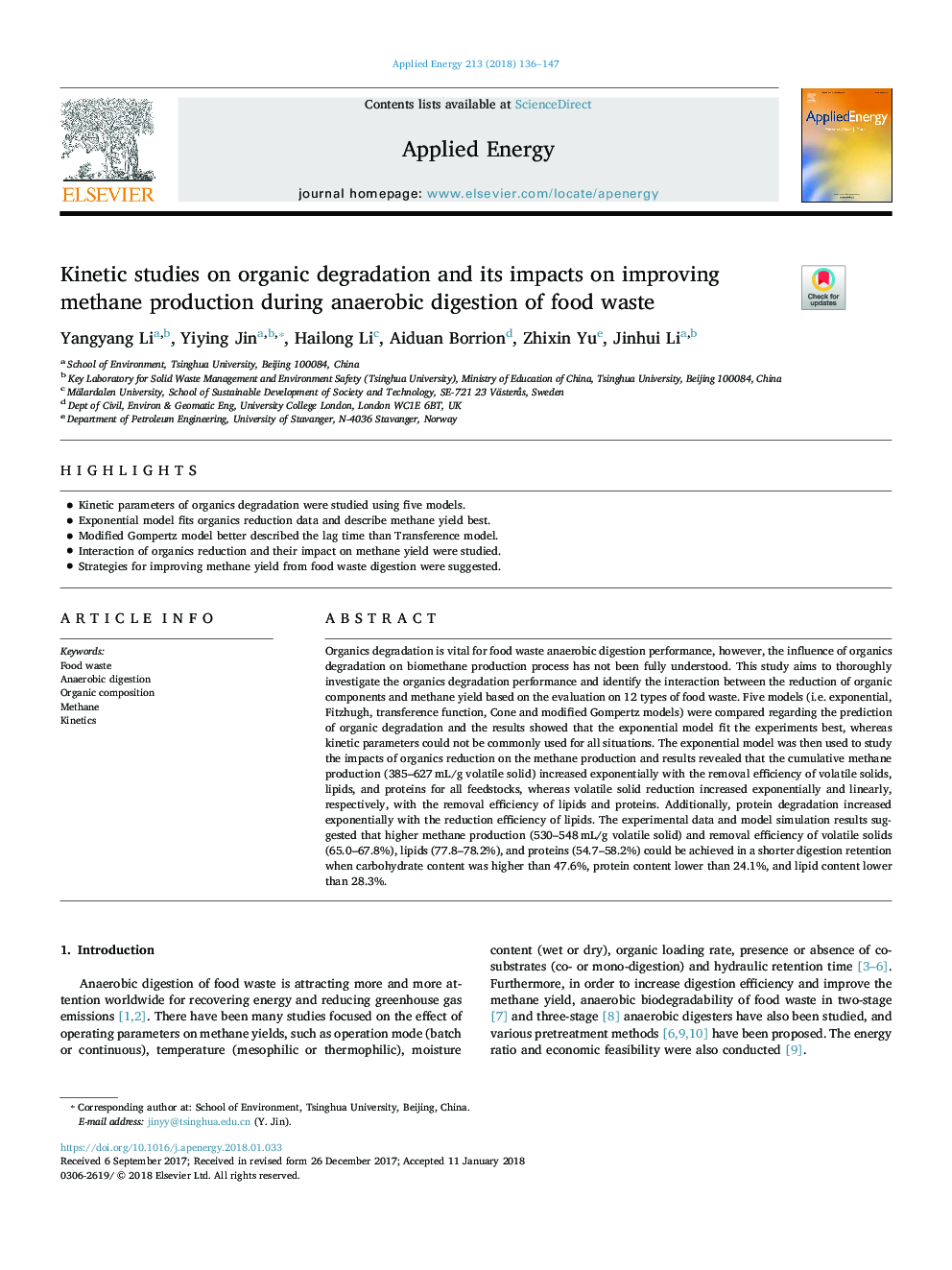| Article ID | Journal | Published Year | Pages | File Type |
|---|---|---|---|---|
| 6680763 | Applied Energy | 2018 | 12 Pages |
Abstract
Organics degradation is vital for food waste anaerobic digestion performance, however, the influence of organics degradation on biomethane production process has not been fully understood. This study aims to thoroughly investigate the organics degradation performance and identify the interaction between the reduction of organic components and methane yield based on the evaluation on 12 types of food waste. Five models (i.e. exponential, Fitzhugh, transference function, Cone and modified Gompertz models) were compared regarding the prediction of organic degradation and the results showed that the exponential model fit the experiments best, whereas kinetic parameters could not be commonly used for all situations. The exponential model was then used to study the impacts of organics reduction on the methane production and results revealed that the cumulative methane production (385-627â¯mL/g volatile solid) increased exponentially with the removal efficiency of volatile solids, lipids, and proteins for all feedstocks, whereas volatile solid reduction increased exponentially and linearly, respectively, with the removal efficiency of lipids and proteins. Additionally, protein degradation increased exponentially with the reduction efficiency of lipids. The experimental data and model simulation results suggested that higher methane production (530-548â¯mL/g volatile solid) and removal efficiency of volatile solids (65.0-67.8%), lipids (77.8-78.2%), and proteins (54.7-58.2%) could be achieved in a shorter digestion retention when carbohydrate content was higher than 47.6%, protein content lower than 24.1%, and lipid content lower than 28.3%.
Related Topics
Physical Sciences and Engineering
Energy
Energy Engineering and Power Technology
Authors
Yangyang Li, Yiying Jin, Hailong Li, Aiduan Borrion, Zhixin Yu, Jinhui Li,
